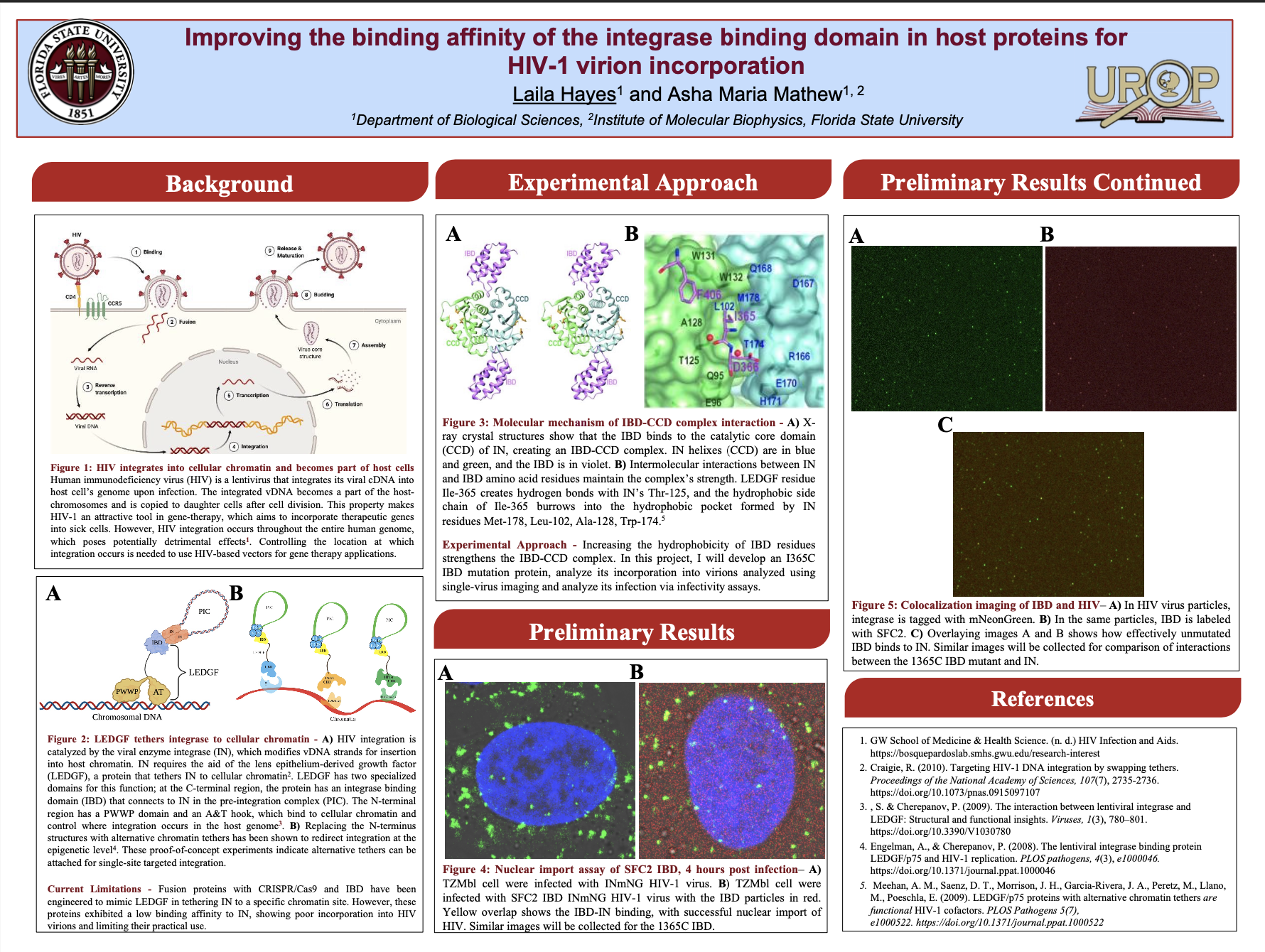Research Symposium
23rd annual Undergraduate Research Symposium, April 6, 2023
Laila Hayes Poster Session 4: 4:00 pm - 5:00 pm/ Poster #245

BIO
I am a second-year Benacquisto Scholar majoring in Interdisciplinary Medical Sciences with a minor in Spanish. I am currently an involved in the Medical Response Unit, USSTRIDE, and the Power of We.
Improving the binding affinity of the integrase binding domain in host proteins for HIV-1 virion incorporation and targeted gene therapy
Authors: Laila Hayes, Asha Maria MathewStudent Major: Interdisciplinary Medical Sciences
Mentor: Asha Maria Mathew
Mentor's Department: Institute of Molecular Biophysics Mentor's College: Florida State University Co-Presenters:
Abstract
HIV-1 relies on several host factors for successful cell infection, including the lens epithelium derived growth factor (LEDGF) which interacts with the viral enzyme integrase (IN) to facilitate vDNA integration into host chromatin. At its N-terminal region, LEDGF contains a PWWP-domain responsible for interaction with cellular chromatin, and at its C-terminal region, an integrase binding domain (IBD) that interacts with IN. The N-terminus structures tether IN in the HIV-1 replication complex to chromatin and dictate where vDNA integration occurs in the cellular genome. Published work shows creating alternative chromatin-binding domains in LEDGF that recognize histone codes in fusion proteins with IBD effectively redirects integration at the epigenetic level; this supports the potential for developing IBD fusion proteins that direct vDNA integration into specific genomic loci for gene therapy applications. However, IBD fusion protein constructs have low binding affinities with IN, leading to inadequate packaging into virions. Structural studies reveal that upon binding, IBD and IN form a complex maintained by the proteins’ hydrophobic residues burrowing together. Increasing the hydrophobicity of IBD residues enhances the IN-IBD complex formation. In this project, amino acid modifications are introduced into IBD proteins to improve binding affinity to IN. The efficiency of IBD’s association with IN, packing into virions, and redirecting HIV-1 integration will be evaluated by cellular, biochemical, and genomic approaches. The improved binding affinity of IBD to IN and its utility in redirecting HIV-1 integration will validate practical use in gene therapy. This project is in the process of collecting and analyzing data.
Keywords: HIV, IBD, Integrase


